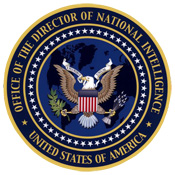The latest American intelligence estimate on Iran has provoked an emotional response in Europe reminiscent of the euphoria inspired by Chamberlain's words on Sept. 30, 1938, as he appeared before the throng in front of 10 Downing Street and announced that he had achieved "peace in our time." Even if many commentators warn not to reduce the pressure on Tehran, the dominant sentiment is a feeling of relief: a sentiment to which the German weekly Die Zeit, for example, gave expression with the headline "Phew! There'll Be No World War Then!" The focus of the coverage in the media is not on the bitter realization that until 2003 the Iranian military apparatus was explicitly pursuing the development of an atomic weapon, but rather on the "good news" in the National Intelligence Estimate (NIE): namely that this military program "was halted primarily in response to international pressure," which is supposed to prove that "Iran may be more vulnerable to influence on the issue than we judged previously." If Iran gave in to international pressure in 2003, the implicit reasoning of the report runs, then it will certainly do so as well in the future. Thus, summarizing the implications of the NIE report, the author of the article in Die Zeit can conclude that "the Iranian regime does not so much conduct its foreign policy according to ideological criteria, but rather according to a lucid cost-benefit analysis."
In such reflections, wishful-thinking has anesthetized rational thought. The last five years of Iranian diplomacy have demonstrated beyond doubt that the Mullah dictatorship does not work like other states. Tehran has ignored both the "carrots" of economic incentives and the "sticks" of international isolation and has pursued a weapons-related nuclear program at all cost. The intelligence report does not even tangentially touch upon this experience. Instead, it tries to hide the rubble of the failed diplomatic initiatives behind a pleasing new image of Iran: Tehran, the report affirms, "is less determined to develop nuclear weapons than we have been judging since 2005." The intelligence agencies adduce only a single proof of this supposed new attitude: in fall 2003, Tehran is alleged to have halted its nuclear weapons program "in response to increasing international scrutiny and pressure." But precisely this assertion -- the core finding of the report, from which all its other conclusions follow -- is obviously unfounded.
'International Pressure'

